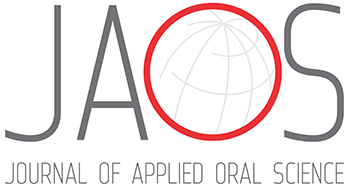OBJECTIVE: The present study was designed to retrospectively evaluate Class I malocclusion cases treated with extraction of the four first premolars, aiming to establish the relationship between the quality of orthodontic treatment outcomes and the long-term occlusal stability. MATERIAL AND METHODS: The sample comprised 94 patients of both genders, presenting Class I malocclusion, treated with extractions of the four first premolars and Edgewise mechanics. All the patients selected were whites, being 50 males and 44 females. The mean pretreatment age was 13.46 years (s.d. 1.8). The mean treatment time was 2.09 years (s.d. 0.58), the mean retention time was 1.63 years (s.d. 0.73) and the mean time of postretention evaluation was 5.31 years (s.d. 1.61). The dental casts were measured at pretreatment (T1), posttreatment (T2) and postretention (T3), by the PAR index and by the Little irregularity index, and the correction due to treatment (T1-2) and the change at the postretention period (T3-2) were calculated. The descriptive statistics was performed and the Pearson correlation coefficient was applied for the PAR and the Little indices in the total sample, among the times evaluated. RESULTS: The mean PAR reduction due to treatment was 78.54%, and 66.6%, at the postretention stage related to pretreatment stage. Significant correlations were found for the PAR index at the times evaluated, except between T1 and T2 and between T1-2 and T3. In other words, the higher the treatment correction (T1-2), the lower the posttreatment PAR index (PAR T2) will be, and the higher will be the PAR change at the postretention period (PAR T3-2). Also, the higher the posttreatment PAR score (PAR T2), the higher will be the postretention PAR score (PAR T3). CONCLUSION: It was concluded that the quality of orthodontic treatment outcomes is not related to the long-term occlusal stability.
Treatment outcomes; Recurrence; Orthodontics



